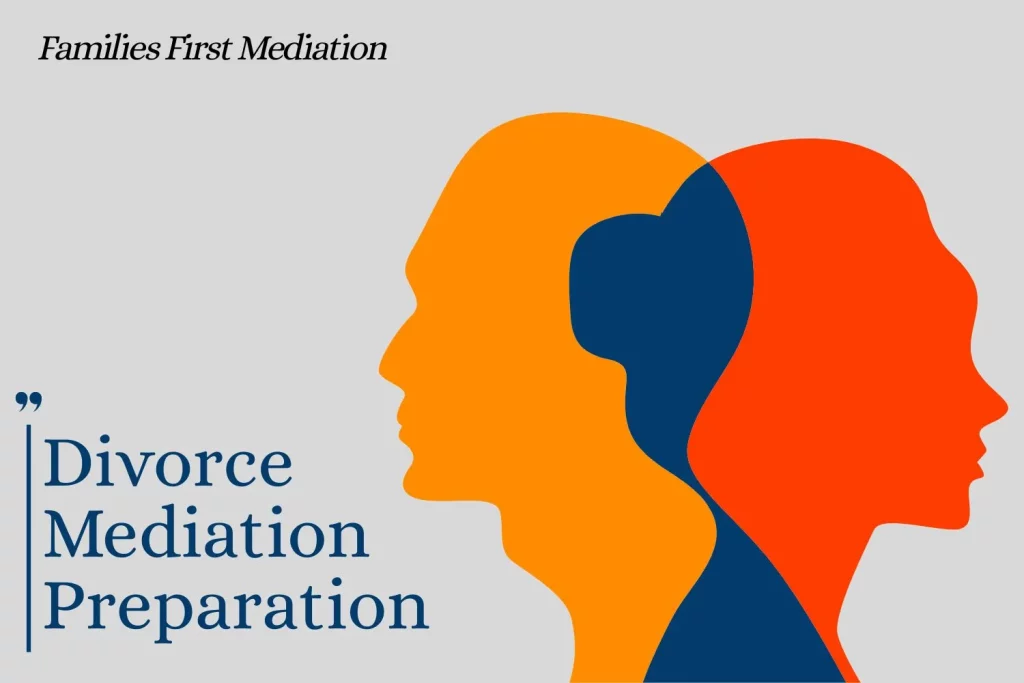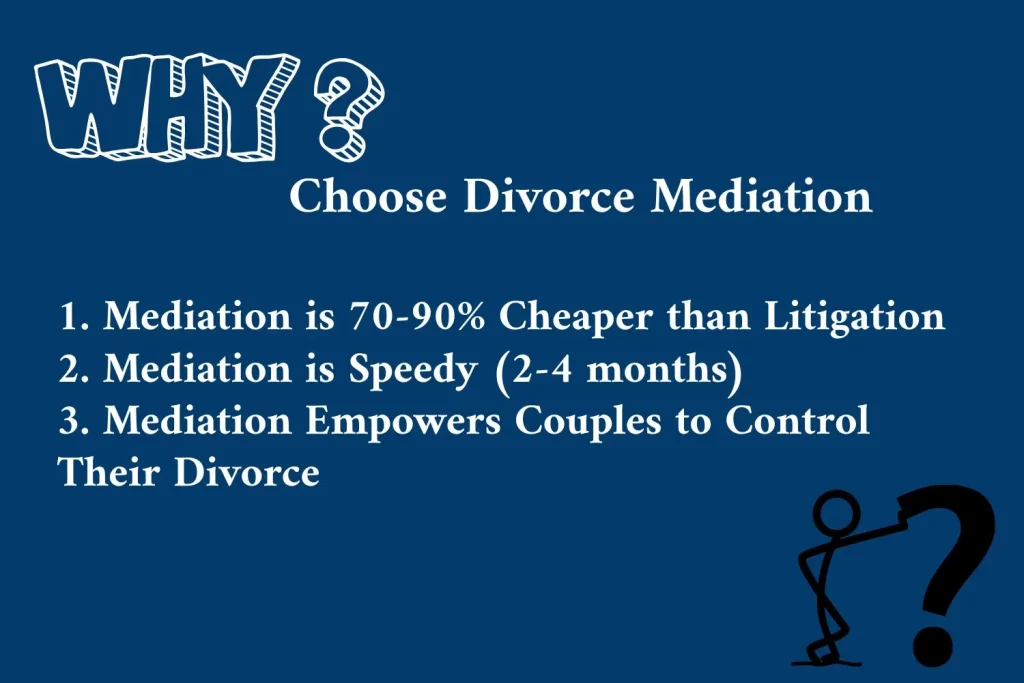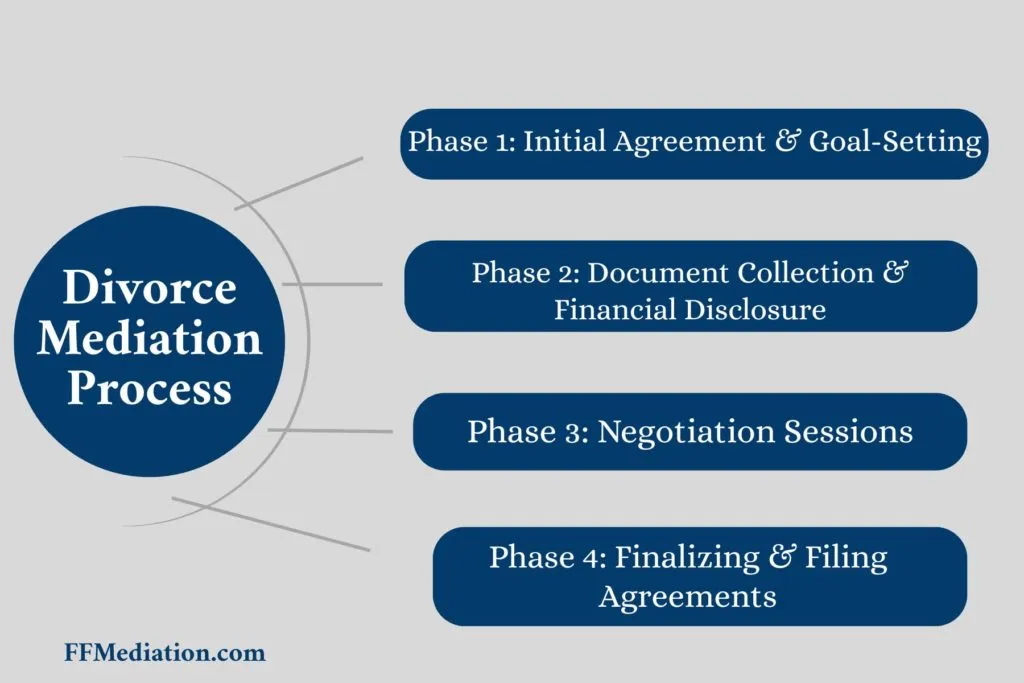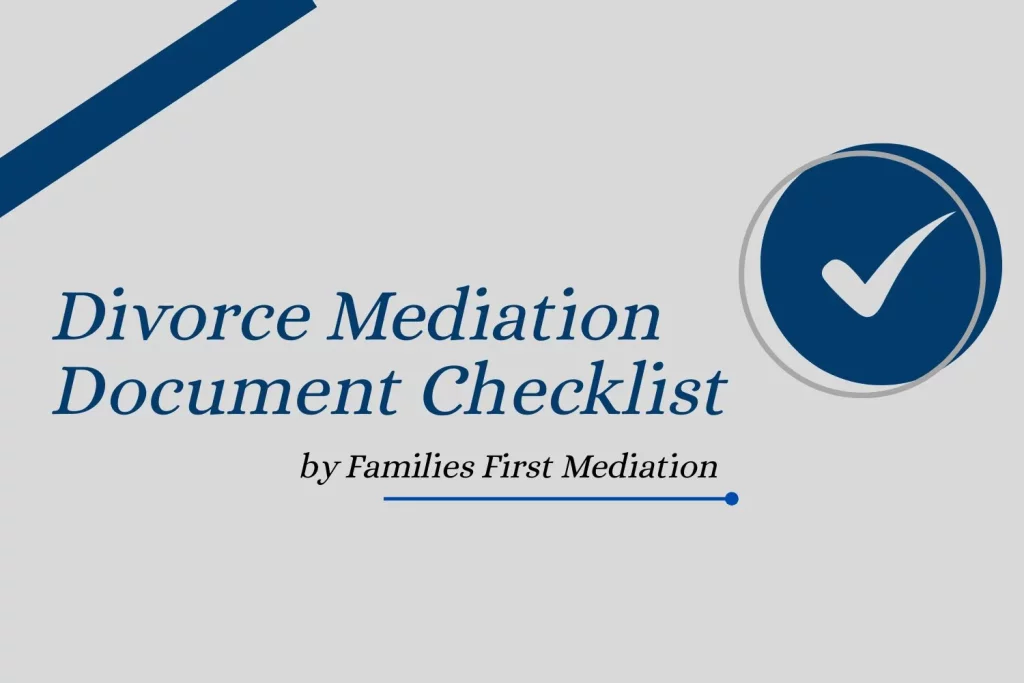Providing Divorce Mediation Services Throughout California
Providing Divorce Mediation Services Throughout California
You may have heard of divorce mediation from a friend TV, or the San Jose community.

Reach out to find the best solution for your divorce with trusted professionals.
Divorce mediation in California is a wiser option than going to court—it usually saves time and money and keeps you in control of the process and outcome!
In short, mediation streamlines conflict resolution, reducing chaos and costs. For instance, Families First Mediation typically resolves divorce cases in months, at a fraction of litigation expenses.
Our process at Families First Mediation is different because we will walk you through preparation at your pace and only ask for documents when necessary.
Also, if your case involves complex financials and parenting plans or requires some conflict evaluation and resolution, mediation provides a clear process to arrive at fair solutions.
This guide will outline how to prepare efficiently and without stress. To start, we will explain what mediation is, and what makes mediation an effective process.
Book your free consultation with Dina Haddad to navigate divorce easily.

Divorce mediation is a structured but flexible process. You and your spouse work with a neutral mediator to reach agreements collaboratively instead of going to court and having a judge decide the outcomes for you.
This process allows you to control many of the outcomes, including how you will divide assets, parenting plans, and support arrangements. It also saves you time, money, and emotional energy compared to normal litigation.
Dina Haddad, California’s expert mediator and Superlawyer help you through a phased approach to make things easier.
We will identify clear goals and establish ground rules, and gradually address issues like financial disclosures and parenting decisions in dedicated sessions.
We ensure that our agreements adhere to all of California’s specific requirements, from community property laws to local court filing procedures.
The best part is that mediation can take up to 3-5 times less time to resolve the case than litigation and without unnecessary conflict and disruption.
Read More: Divorce Mediation Tips & Tricks.
Mediation offers California couples three major advantages to the traditional contested divorce litigation: lower cost, faster resolution, and more control over the outcome. Let’s take a look at why it matters in your case.

Mediation is usually 70-90% less expensive than litigation because you are not paying for court appearance fees or attorney hours; the process is more straightforward.
A contested divorce can easily cost $50,000 or more in all legal fees, but most mediated cases settle between $5,000 and $15,000.
The state of California has a waiting period of 6 months but, for mediated cases, full agreement generally happens in around 3-5 sessions (2-4 months).
Directed litigated divorces can take 12-24 months because of court delays and the generally hostile nature of the method.
Unlike court rulings that impose rigid, one-size-fits-all judgments, mediation lets you craft creative agreements. You might:
The courts just do not provide for this level of customization. In simple terms, Mediation can give couples in California the path to a fast, fair resolution and save you from destroying your remaining assets for the next phase of your life.
However, if your case has domestic violence and an uncooperative spouse, divorce mediation may not be recommended.

At Families First Mediation, we have broken down the divorce mediation process into clear phases designed to remove worry and stay on track. Here is how our process works:
We will establish a mutual understanding and lay the groundwork for productive discussions. We will identify the priorities in terms of asset division, a parenting plan if relevant, and gauging any immediate issues.
This phase will include signing the mediation agreement, which outlines the confidentiality conditions, fees, and process flow.
We will also explain California’s community property laws, if they are relevant in your specific situation, so there is no ambiguity about what you are entitled to or entitled to give up.
Instead of requesting that you provide all of your paperwork in the beginning, we request documents as you need them.
You will typically start the process by submitting basic documents such as recent tax returns, pay stubs, mortgage statements, etc.
We will compile and organize this information to give a clear picture of your financial situation, removing the stress of compiling all documents at once.
For our California clients, we will make every effort to streamline the process and also be clear about our full compliance with mandatory disclosure obligations laid out in California law.
Here’s where we wind up with solutions through a structured process that includes mediator-facilitated conversations.
Once agenda items have been established, we talk one topic at a time (e.g., parenting schedules before splitting retirement plans), so we can make incremental strides without becoming overwhelmed.
For heated issues, we utilize various methods that keep talks focused on constructive conversations while identifying creative compromises.
Typical cases can expect 4-6 of these 2-hour sessions scheduled at your convenience.
Once all the issues are settled, we will prepare a comprehensive Marital Settlement Agreement that meets California legal requirements.
You will also have an opportunity to review it with an independent attorney (something we recommend for all clients) prior to signing.
Our team will then prepare and file all court documents and guide you through all the remaining steps to formally complete your divorce pursuant to California requirements.
Learn More: Divorce Mediation Complete Process Explained.

At Families First Mediation, we don’t believe in overwhelming you with endless paperwork. Instead, we’ll request these documents only when they’re relevant to your current mediation phase.
Here’s what to expect, organized by category:
Other Financial Statements, like budget, projected post-divorce expenses, and any prenuptial or postnuptial agreements)
As always, you will not be flooded with document requests—everything is requested in logical steps.
Scanned copies or secure digital uploads work perfectly, and if you’re missing something, we can get creative (like using IRS transcripts when tax returns cannot be provided).
Download: Divorce 90-Item Detailed Checklist PDF.
Mediation needs clarity, not conflict. Begin by identifying your deep interests (e.g., financial security, parenting priorities) rather than a position.
Make sure to practice active listening by allowing your spouse to share their concerns without giving a rebuttal.
Choose a time when you are all well-rested, and if you sense a rise in tension, take a break; you can do this whenever necessary. Our divorce mediators are trained to turn heated discussions into problem-solving solutions. We will help if you get stuck!
Professional Tip: Before your meeting, write down any emotional triggers you may have to consider. People get heated in arguments and disagreements based on fear, so identify your fear (“I fear that…”), and it will help clarify how you can move forward in a resolution with your spouse.
At FamiliesFirstMediation, we have developed a way for couples to resolve their divorce more efficiently and economically.
Due to our phase approach and active focus, our clients, on average, rely on 40% fewer mediation sessions than those of our competitors.
Here are three key elements that make this really successful:
Schedule a free consultation call with Families First Mediation! Let’s make your divorce less stressful.